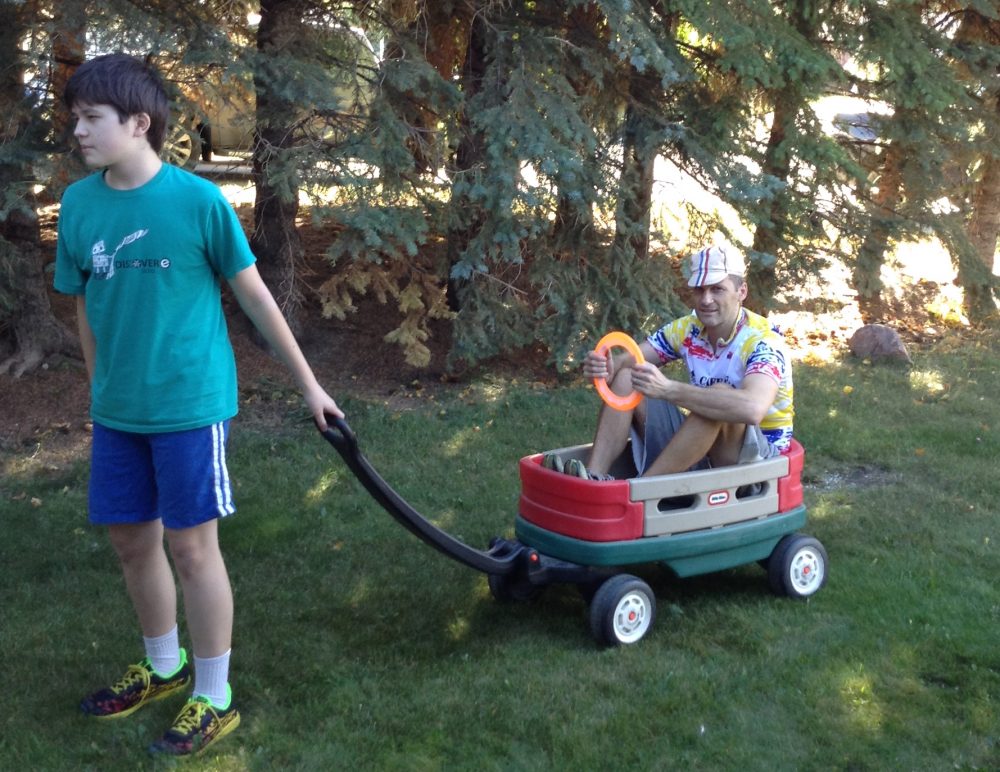After 50+ years in this game of life, you would think I would know myself.
I have always been of the opinion that I was a teacher who should specialize in the most senior of high school subjects. The students would then be old enough to appreciate my serious dedication to the subject and my playful (but subject specific) wit. Younger students would be repulsed by such things, seeing them as boring. To add evidence to this, I remember teaching a grade 10 science class and the only feedback I ever heard from them was that I needed to play more Bill Nye videos.
So, this conclusion has been firmly cemented in my mind for many years now. Students must be in Grade 11 and 12, and preferably, they must be serious academic students who are striving for maximum knowledge and transferable skills to university and science-based careers.
But today, my entire worldview was shattered. A colleague to mine needed to go to an appointment during the school day, and he needed someone to cover for him. I volunteered, despite my trepidation to enter into a new cohort and increase my chances of getting Covid and despite the fact that he taught a bunch of Grade 10 students. It was a noble sacrifice, but there was no way I was going to enjoy it. I would don my mask, keep my distance, and count the minutes as they slowly ticked by, like the tolling of the bells … which tolled for me.
Yet, when I entered the room, I noticed that they were doing higher level physics work. A good sign. And, it turned out that they were really struggling with that content, and really needed someone to help them understand it. Someone … like me.
Sure enough, when the other teacher passed the baton and bolted out of the classroom, I was almost instantly inundated by questions. The line grew longer and longer, and I knew that I had to step in and deal with this situation with them as a class. So, I sat them down and went through a question in great detail. And as I did, the students punctuated my lesson with ooohs and aaahs of discovery, and I knew I was breaking through. When I finished, the students announced that they finally got it and proceeded to dig deep into the homework and find success, and all the while, I had students who were begging me to be their teacher.
Very gratifying, I must admit. Maybe this Grade 10 gig wasn’t so bad.
And as I watched these students, I was overwhelmed by the amount of energy and passion and excitement that they had. They were not the quiet, jaded, and weary students that I often experienced in the senior grades, the ones who looked like they would rather be anywhere else but in my class. These kids still loved learning, or at least a good number of them did, and they seemed so happy to be there, to be together, and their joy simply radiated from them.
And I was basking in it, and I got swept up. So much so that I felt the need to add additional instruction, urging these kids on to even higher levels of proficiency. I don’t know what came over me. I even gave a speech at the end, thanking them for making this such an enjoyable experience, and telling them that I hoped I would have them in my class in the near future.
Jean Val Jean, I can hear you now. Who am I? I am uttering the same question as I write. Where is the proto-professor who demands strict attention and full respect from all students? From whence came this young upstart neophyte who frolics with the young colts, giddy and carefree?
I sure hope I am not asked to chaperone an elementary class. If I discover that I am at ease with the snotty nosed ankle biters, then I will walk straight to a psychologist and get my head examined. It will be nothing short of a sign of the apocalypse.
